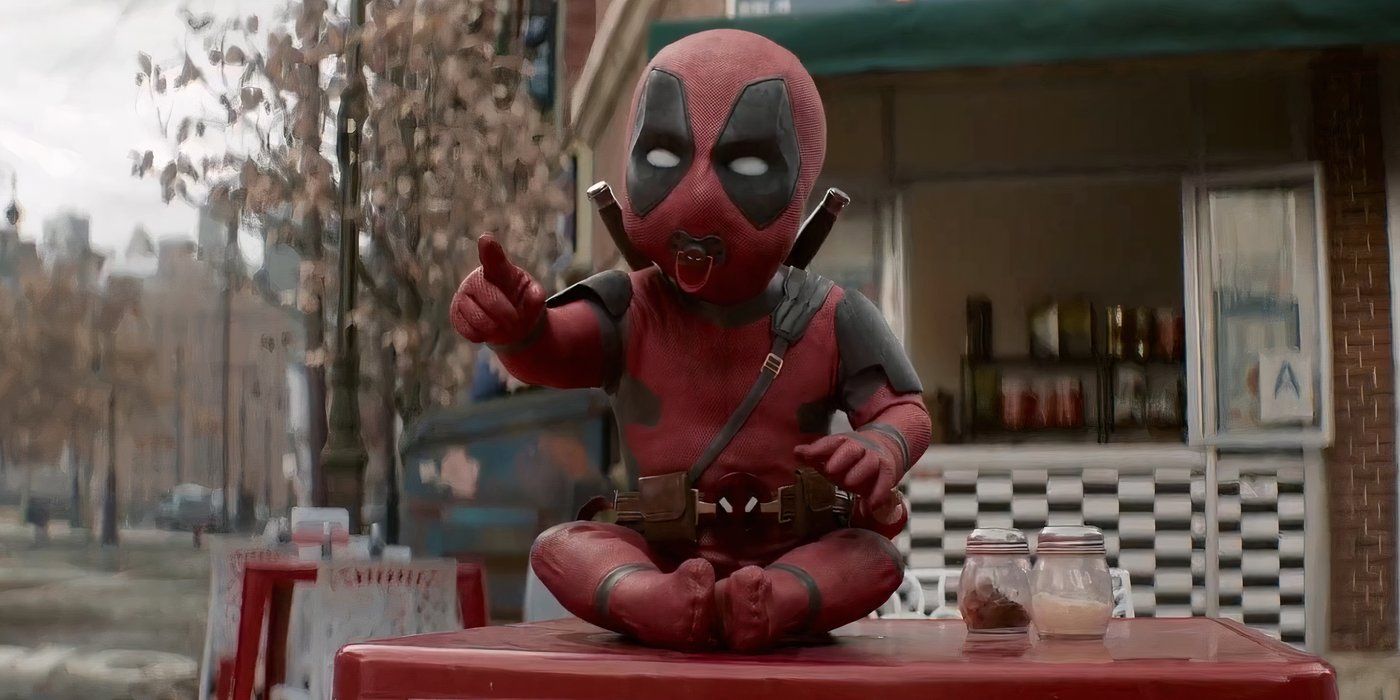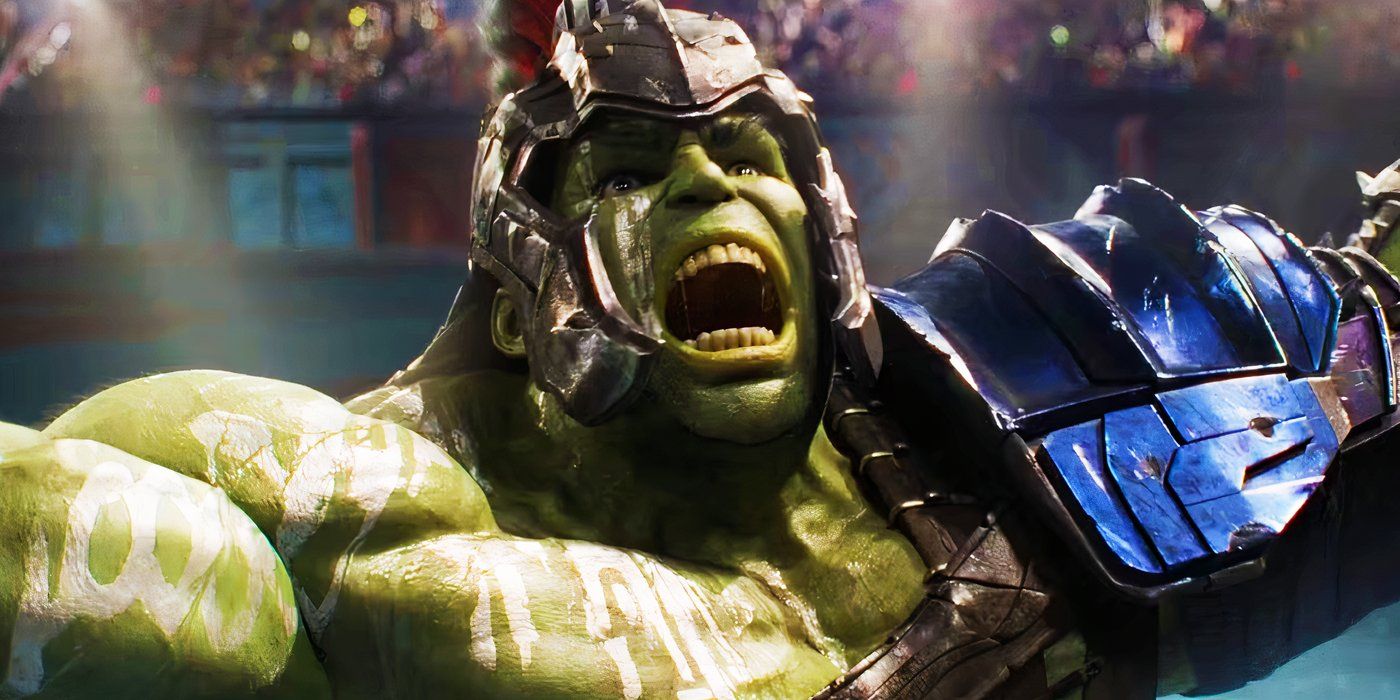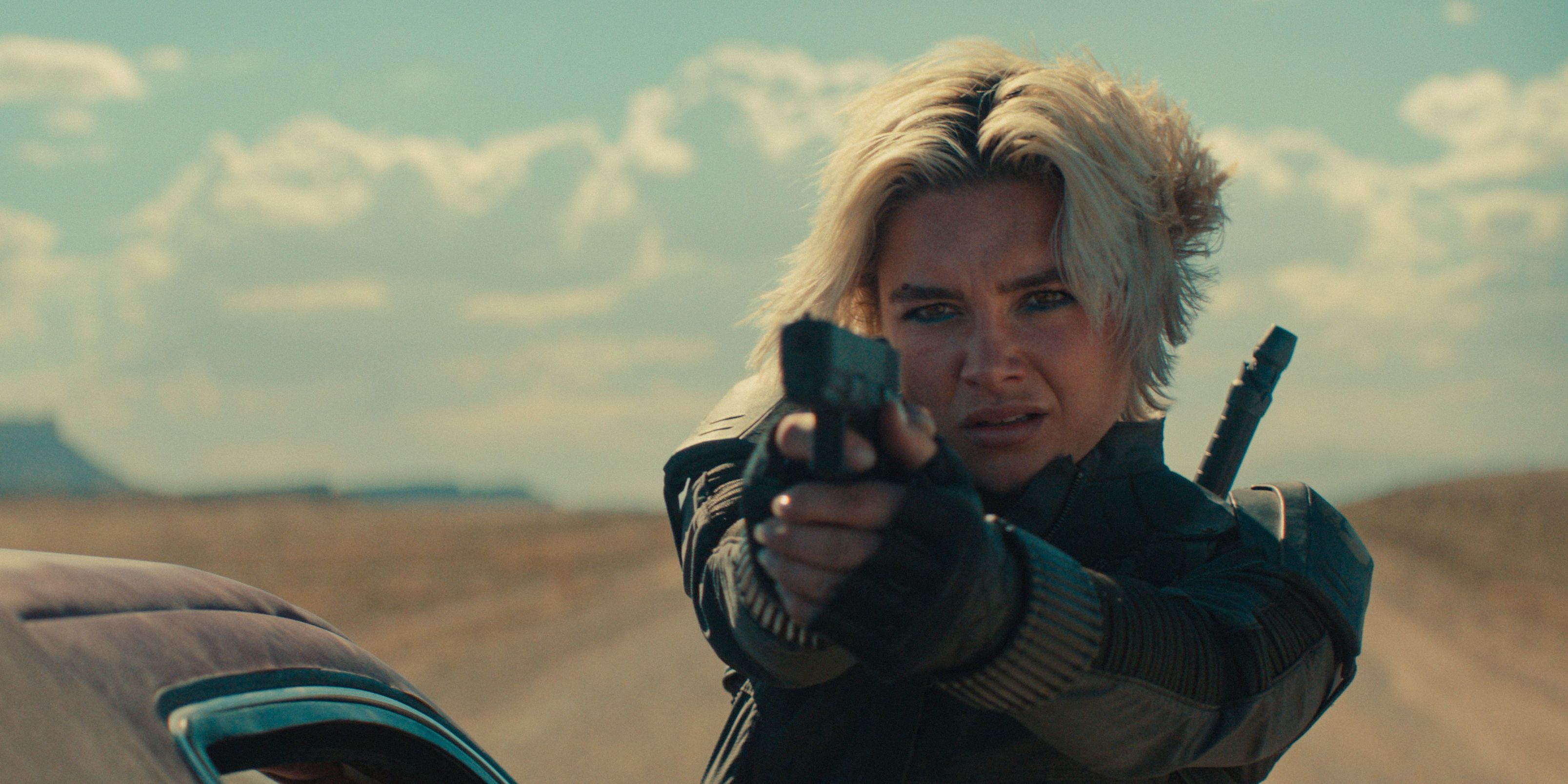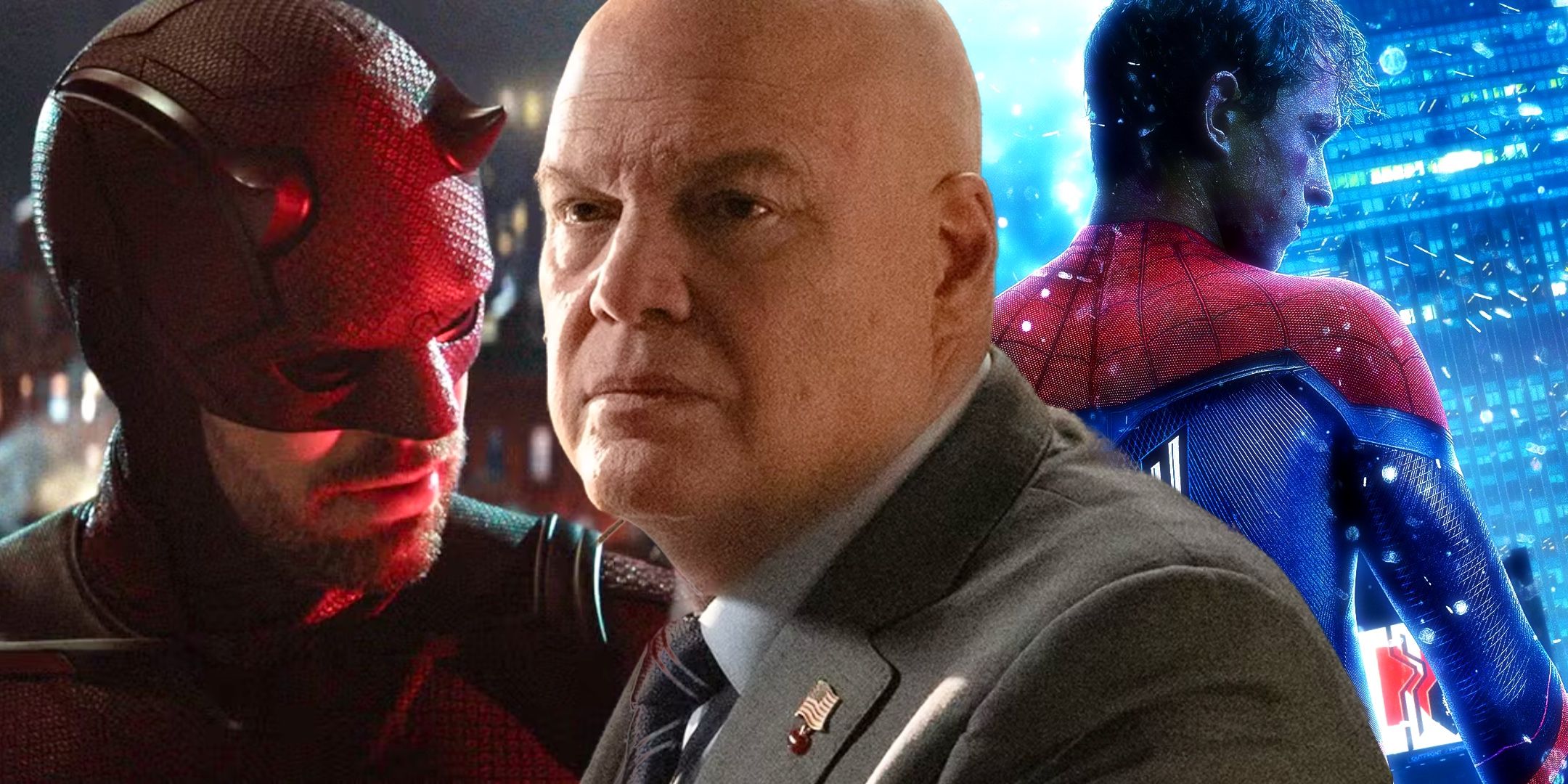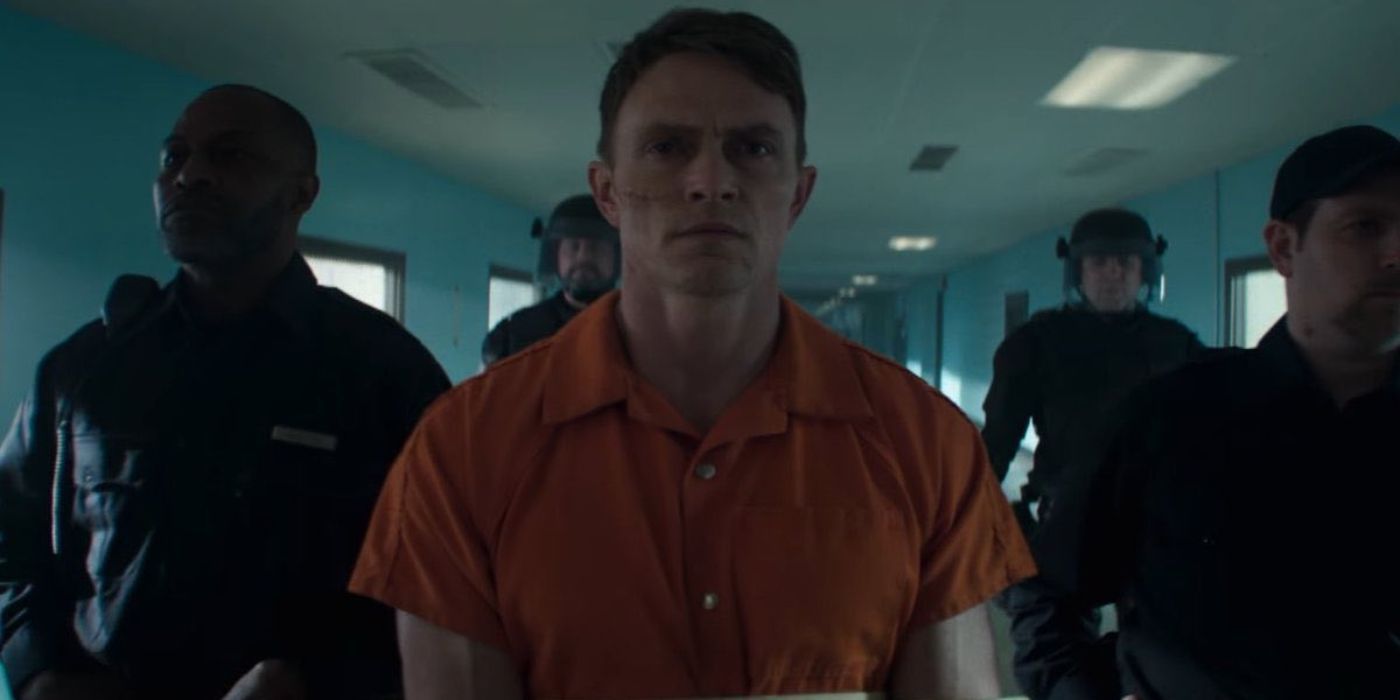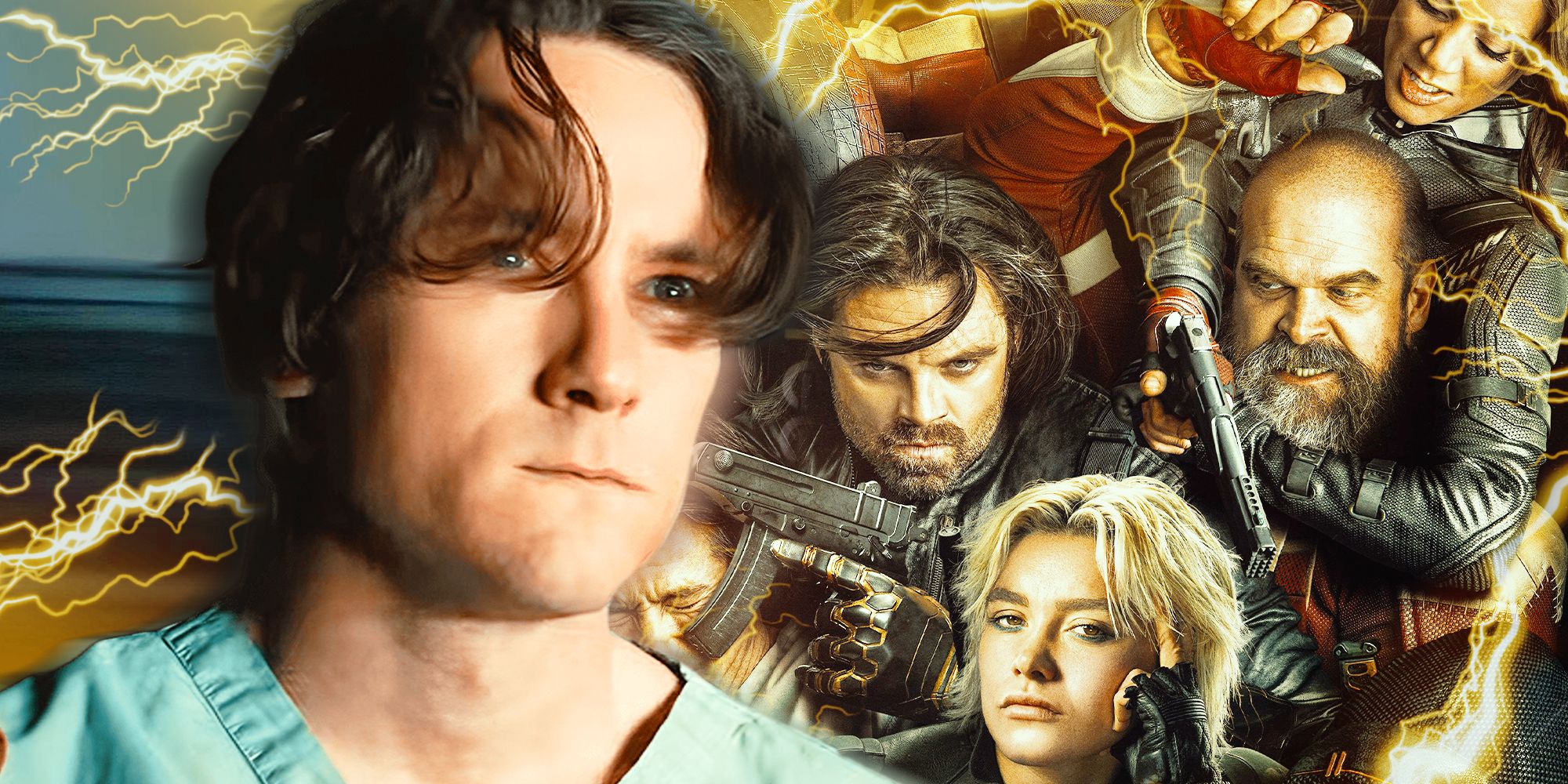10 Scenes That Most Defined Captain America"s MCU Story
Summary- Captain America's journey from a weak civilian to a leader of other heroes sets him apart in the MCU.
- Steve Rogers' sacrifices, conflicts, and growth showcase his humanity and unwavering belief in doing what is right.
- Captain America's role goes beyond being a superhero - he represents values that inspire unity and cooperation among all heroes.
While Captain America has always been an important character in Marvel Comics, the performance of Chris Evans and the films in the MCU timeline have genuinely elevated him to a true A-list hero in the public eye, on par with Batman, Superman, and Spider-Man. Tracking that progression and the character's growth throughout the films he appears in gives excellent insight into what makes a character like this so compelling and important to his universe and shapes a singular story and journey. To narrow that down, a series of moments can be highlighted, highlighting the journey and importance of Captain America.
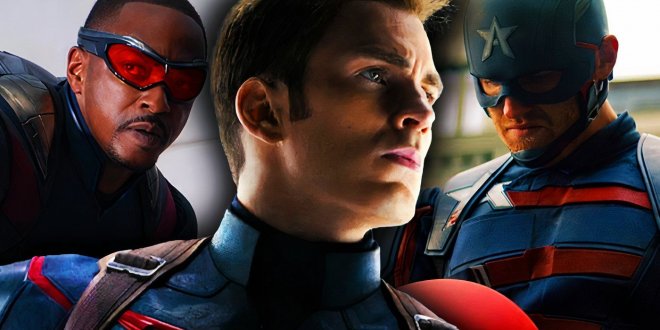 Related Every Actor Who Has Played Captain America In The MCU Four actors have played different versions of Captain America in the MCU"s live-action and animated adventures, dating back to the start of the MCU.
Related Every Actor Who Has Played Captain America In The MCU Four actors have played different versions of Captain America in the MCU"s live-action and animated adventures, dating back to the start of the MCU.10 "I Can Do This All Day" Willpower And Character Can Rival Any Superpower In The MCU In The First Avenger, audiences meet a small, physically weak iteration of Steve Rogers. Despite his size, it becomes clear that Steve Rogers' willpower and desire to be an asset to the world are enormous. This is best exemplified in this scene, where Captain America stands up to a bully at the movie theater and gets into a fight as a result. As the much larger, stronger man beats Steve Rogers handily, Rogers continues to get up and fight back. In this scene, the character's willpower is made clear.
It is important to the character to have Captain America whose superpowers are not his only asset. In this scene, he continues to fight even beyond his physical capacity. Having a Captain America whose faith and belief are even stronger than his reason has been important for the MCU, where enormous, unreasonable threats have hung over the heads of heroes. Beginning here, with a kind of weakness, effectively sets up the character's story.
9 "Don’t You Dare Be Late" The Loss Of Captain America Yields A Leader Out Of Time In this distressing scene from The First Avenger, Captain America goes down with the ship, sacrificing himself to protect others. As he sinks into the ocean, frozen in ice, Peggy Carter cries, mourning his loss. Even though audiences are given a tease of his future in The Avengers, for the characters of The First Avenger, this moment would go on to reverberate through Marvel storytelling via making Steve a man out of time when he finally wakes up decades later.
Captain America's first and largest sacrifice sets the narrative and themes for his character in this one single scene. Speaking with Peggy Carter over the radio, Steve Rogers makes promises he cannot fulfill at the time but never gives up on. While the words shared here seem like promises to keep his spirit up that would never be fulfilled, in fact, they become a motivation for Steve throughout the entire series, culminating with his return to Peggy at the conclusion of Avengers: Endgame.
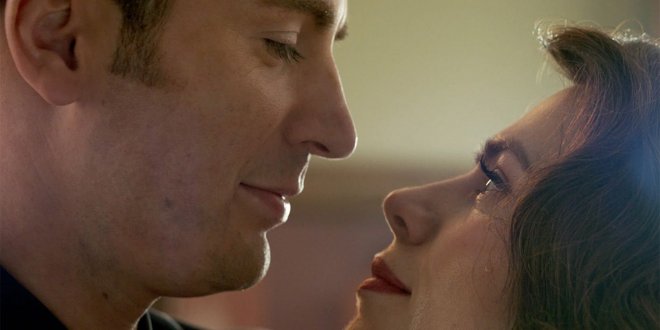 Related Captain America's Endgame Finale was Much Different in the Comics Captain America"s final dance after an impossible victory wasn"t with Agent Carter in the Ultimate Universe but with the Wasp at a White House party.
Related Captain America's Endgame Finale was Much Different in the Comics Captain America"s final dance after an impossible victory wasn"t with Agent Carter in the Ultimate Universe but with the Wasp at a White House party.8 "Why The Hell Should I Take Orders From You?" New Paradigms For Authority In The MCU Are Created During the battle of The Avengers in New York City, chaos reigns over the entire downtown core. Within this fighting, the conflict goes well past the Avengers themselves and affects the lives of citizens and public servants alike. Here, the symbol of Captain America shines as he takes control and begins to give commands to bring order to the chaos. While the police officers at first question his orders, they see him fight off the threat and quickly turn to his side.
At the beginning of The Avengers, Captain America is not the heroic figure he would become. While some, like Phil Coulson, fondly remember the story of Captain America from the 1940s, his decades-later return isn't always given the same credence. As such, eseeing Captain America prove himself and gain the trust of the city police then is an important development of his character. It would influence how, even in small ways, Steve Rogers would always be working within the systems he believed so hard in upholding. This faith influences the efficacy of later confrontations with the Sokovia Accords.
7 Captain America Reminds Bucky Of Who He Is Belief In The Individual Shapes So Many Marvel Journeys Despite losing his friend decades before, it's clear Captain America never stopped believing in Bucky, and upon discovering the fate of his old ally, will stop at nothing to try and help him. Even amidst destruction and violence pointed at him, at the risk of his own life, Steve insists on reaching out to Barnes, placing their bond above his own wellbeing.
Captain America is a person who believes in the inherent good of people. This has been important to his development, where his powers are secondary to his character, and his moral fibre is just as capable of doing good as his enhanced abilities. This insight also gives credence to his choices, including making Sam the next Captain America, or his belief in the importance of resisting the Sokovia Accords.
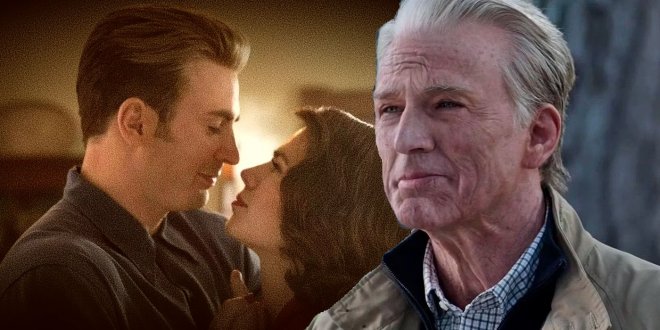 Related "He's Why I Exist": Captain America Answers a MAJOR MCU Question that Justifies His Endgame Fate While Captain America"s ending in the MCU was fairly divisive among fans, a revelation in the comics shows his choice didn"t come lightly.
Related "He's Why I Exist": Captain America Answers a MAJOR MCU Question that Justifies His Endgame Fate While Captain America"s ending in the MCU was fairly divisive among fans, a revelation in the comics shows his choice didn"t come lightly.6 Captain America Won’t Support The Sokovia Accords Symbols In The MCU Are Limited And The Heroes Must Grow Beyond Them In this scene, Captain America takes his first stand against the government that created him. While generally in line with the orders he receives, the character is forced to grow beyond merely the apparatus of an institution and into the moral code that he embodies. By taking a faithful stand against the Sokovia Accords, Captain America's further moral and ethical leadership grows stronger, even if only shown by small, thoughtful reactions to the dialogue surrounding him.
A Captain America who blindly follows all instructions is explored later in The Falcon and the Winter Soldier, underlining that what the mantle means to the American government is different from what it means to the individual who wears the uniform. Seeing this play out with John Walker was an interesting version of a less dedicated, less moral man confronting the same questions, and it will be interesting to see how Sam handles this weight in Brave New World. Here, the character of Steve Rogers and his will being stronger than his symbol are the most important.
5 Captain America Fights Iron Man Marvel Conflicts Begin To Blur The Lines Between Right And Wrong The Avengers were formed around Tony Stark and Steve Rogers, so this scene in Captain America: Civil War, where the two must confront one another in combat, is tense to watch. Assisted by technology, Stark seems to have the upper hand for most of the fight until the end, where Rogers does significant damage with his shield. Despite this, Captain America leaves once he has proven himself the victor, unable to end his friend's life. Steve then tosses his shield and all it stands for away, leaving it with Stark.
This conflict and this ending are important for the symbols of the Avengers. Captain America's shield is his badge of his hero role, and surrendering it as he does here speaks to his place in the conflict as it has grown. After refusing to support the Sokovia Accords, Captain America's connection to the institutions he fights for has weakened, and his future as that symbol has become unclear. Heroism and what it stands for appear to have changed in the MCU from this point, and following Steve's path is important in understanding how.
 Related Captain America's Complete MCU Timeline Explained Captain America has been a staple of the Marvel Cinematic Universe since Phase 1, and here is his entire timeline from the beginning to the present.
Related Captain America's Complete MCU Timeline Explained Captain America has been a staple of the Marvel Cinematic Universe since Phase 1, and here is his entire timeline from the beginning to the present.4 "I’m Not Looking For Forgiveness And I’m Way Past Asking Permission" Larger Threats Call For Diverse Ideas To Collaborate Facing a court-martial from a hologram of General Thaddeus "Thunderbolt" Ross, James Rhodes accepts Captain America back into the fold following the dissolution of Captain America: Civil War. While wounds still exist that may never heal, and there is ideological dissension between the ranks themselves, larger threats call for larger action. It becomes clear in this moment that, despite any differences, Captain America is a man who will fight for what is right, no matter who is there beside him.
Knowing that some difficulties are irreconcilable is important to Captain America's character. His ability to confront conflict with grace and honor - even when those conflicts go against the very institutions he came to be a symbol of - is significant. Understanding that the meaning of Captain America can go beyond even the actions of America itself and how that ideal is larger than an individual or even a singular body is made clear here by the hero's return to his team.
3 Captain America Stands Up To Thanos And Fails Failure Is An Important Part Of Any Character's Journey The MCU's heroes are slowly ripped apart in the final scene of Avengers: Infinity War. While Scarlet Witch attempts to keep Vision alive, other members of the Avengers rush toward a nearly victorious Thanos, attempting to keep him from using the Infinity Gauntlet. The most tense moment in this scene is when Captain America rushes the titan himself and fights with all his strength to remove the gauntlet. Thanos even looks at Steve with clear respect before swatting him away.
Steve Rogers represents the best parts of being human. Beyond his powers, the character is defined by willpower and the tenacity to fight against those who seek to destroy. This moment is important because it reflects on the character's humanity and the strength inherent to that humanity. Even in failure, as the darkness follows, Captain America is defined by his compassion and his commitment to his cause, which is made more poignant in the times he doesn't win.
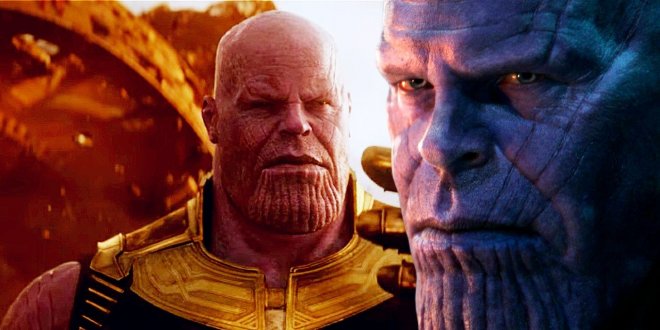 Related 10 Powers Thanos Still Hasn't Used In 7 MCU Appearances Thanos was certainly a mighty figure in the MCU even without the Infinity Gauntlet, but in Marvel Comics Thanos has even more impressive abilities.
Related 10 Powers Thanos Still Hasn't Used In 7 MCU Appearances Thanos was certainly a mighty figure in the MCU even without the Infinity Gauntlet, but in Marvel Comics Thanos has even more impressive abilities.2 Avengers: Assemble Unity And Cooperation Dictate The MCU's Story The culmination of more than a decade of films, the ultimate battle in Avengers: Endgame features the return of characters old and new, resurrected through the portals to all fight together to save the universe. From Guardians of the Galaxy to Ant-Man and the Wasp, every Marvel character has a moment to shine in this cumulative sequence. However, the most important and pivotal character against whom it all plays out is Steve Rogers, who speaks the iconic and historic "Avengers assemble" line.
It speaks volumes to Captain America's journey that Steve Rogers feels like the perfect character to rally the MCU's heroes into their biggest battle yet. No other character has proven himself to be such a worthy leader than Captain America, and the fact that all of these heroes can unite under his banner speaks to the respect each of these characters has for who he is and what he represents.
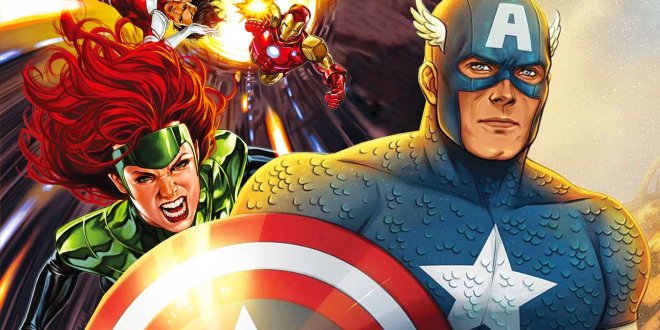 Related Why The X-Men's Version Of Avengers Assemble Is Different Both the Avengers and the X-Men have rallying cries before they charge into battle - but the mutants beat the Avengers in one way.
Related Why The X-Men's Version Of Avengers Assemble Is Different Both the Avengers and the X-Men have rallying cries before they charge into battle - but the mutants beat the Avengers in one way.1 Old Steve Rogers Returns Happy Endings Must Be Found Amidst Sadness Following a trip through time to return the Infinity Stones to their originating locations, Captain America does not return to Bucky Barnes and Sam Wilson in this bookending scene as the man they had expected. Instead, an aged Steve Rogers finds them there, reflecting on a past not shown in the Marvel Cinematic Universe. This Steve had the chance to return to his past and live the life he had always wanted.
From the very beginning, it is clear that Stever Rogers is a man out of place and time. From time to time this is used as a punchline for characters to remark on his anachronistic turns of phrase or principles. It is always evident, however, that the life Steve Rogers was supposed to live was left in the past. While questions remain about how Captain America returned to the MCU timeline, allowing the character a happy ending to live out a life he lost with Peggy Carter allows a sweet conclusion to the character's journey. After giving and being so much to others, Captain America is allowed to rest in the MCU.
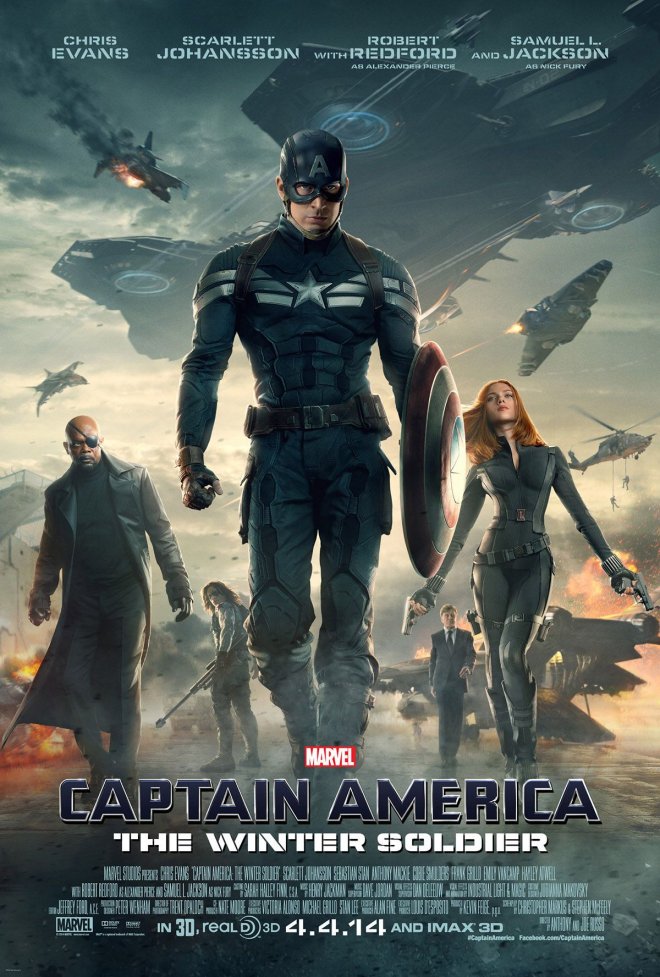 Captain America: The Winter Soldier Captain America: The Winter Soldier is the ninth entry in the Marvel Cinematic Universe. After being awoken from cryosleep in the previous film, Steve Rogers struggles to embrace his role in the modern world. As he adjusts, he must battle a new threat from old history: the Soviet agent known as the Winter Soldier.
Captain America: The Winter Soldier Captain America: The Winter Soldier is the ninth entry in the Marvel Cinematic Universe. After being awoken from cryosleep in the previous film, Steve Rogers struggles to embrace his role in the modern world. As he adjusts, he must battle a new threat from old history: the Soviet agent known as the Winter Soldier.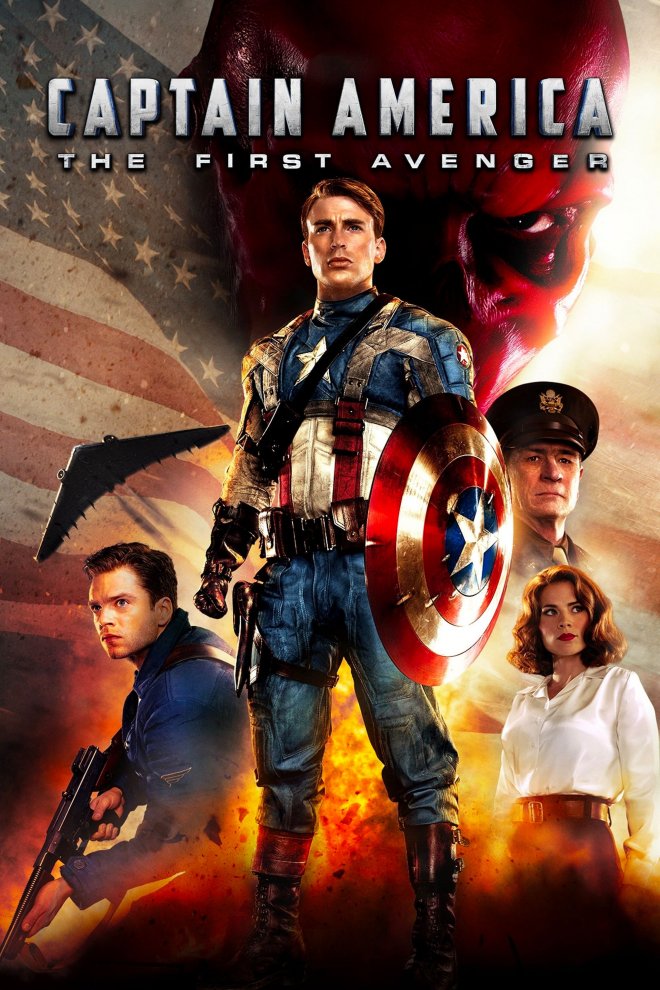 Captain America: The First Avenger Captain America: The First Avenger is a 2011 superhero movie starring Chris Evans as Steve Rogers, a weak patriotic civilian who becomes the test subject for the military's Super Soldier project. The film was the fifth film in the long-running MCU franchise and also starred Samuel L. Jackson, Hugo Weaving, Hayley Atwell, and Sebastian Stan.
Captain America: The First Avenger Captain America: The First Avenger is a 2011 superhero movie starring Chris Evans as Steve Rogers, a weak patriotic civilian who becomes the test subject for the military's Super Soldier project. The film was the fifth film in the long-running MCU franchise and also starred Samuel L. Jackson, Hugo Weaving, Hayley Atwell, and Sebastian Stan.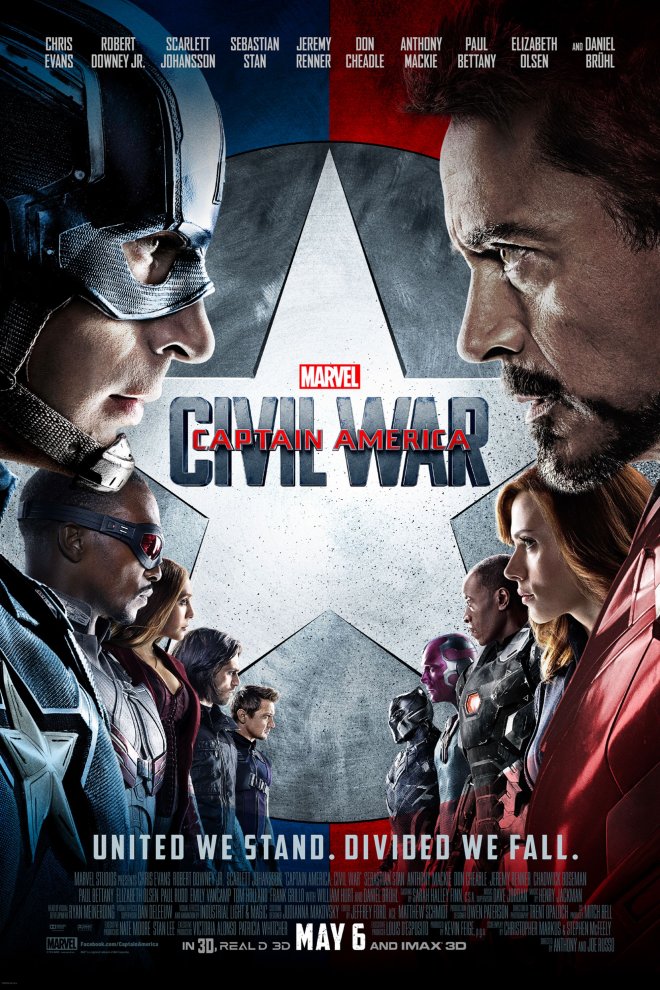 Captain America: Civil War This third Captain America film adapts the "Civil War" storyline from Marvel Comics and sees Steve Rogers (Chris Evans) and Tony Stark (Robert Downey Jr.) at an impasse over who governs superheroes and how. Captain America: Civil War pits two teams of Avengers against one another and introduces new superheroes Black Panther and Spider-Man. The divide between the two perceived leaders of the Avengers caused the other members to choose sides. It all started when the UN decided to take control of the superheroes’ involvement in fighting crimes. Steve disagreed with the UN’s proposal, while Tony supported the decision. Things turn for the worst when Steve’s friend Bucky Barnes (Sebastian Stan), also known as the Winter Soldier, becomes the prime suspect in a terrorist bombing.
Captain America: Civil War This third Captain America film adapts the "Civil War" storyline from Marvel Comics and sees Steve Rogers (Chris Evans) and Tony Stark (Robert Downey Jr.) at an impasse over who governs superheroes and how. Captain America: Civil War pits two teams of Avengers against one another and introduces new superheroes Black Panther and Spider-Man. The divide between the two perceived leaders of the Avengers caused the other members to choose sides. It all started when the UN decided to take control of the superheroes’ involvement in fighting crimes. Steve disagreed with the UN’s proposal, while Tony supported the decision. Things turn for the worst when Steve’s friend Bucky Barnes (Sebastian Stan), also known as the Winter Soldier, becomes the prime suspect in a terrorist bombing.Upcoming Marvel Movies
Release Date
Deadpool & Wolverine
July 26, 2024
Captain America: Brave New World
February 14, 2025
Thunderbolts*
May 2, 2025
The Fantastic Four
July 25, 2025
Blade
November 7, 2025
Avengers: The Kang Dynasty
May 1, 2026
Avengers: Secret Wars
May 7, 2027
[圖擷取自網路,如有疑問請私訊]
|
本篇 |
不想錯過? 請追蹤FB專頁! |
| 喜歡這篇嗎?快分享吧! |
相關文章
tag_marvel








